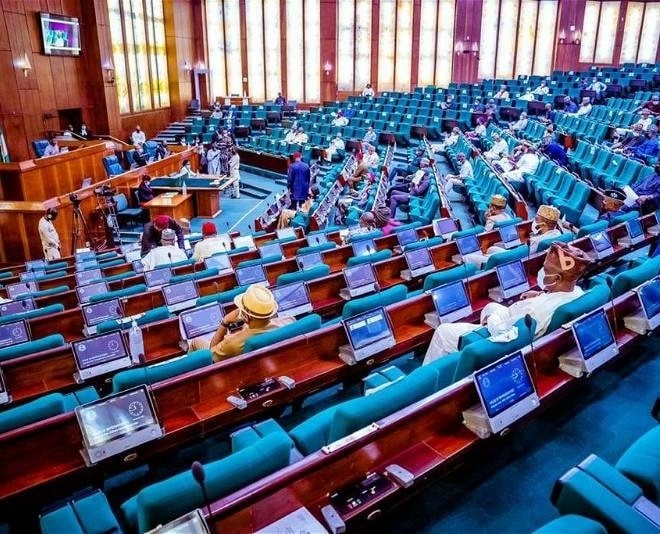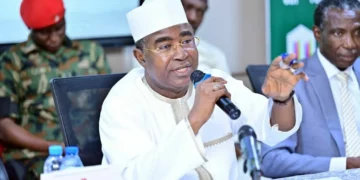The House of Representatives Committee on Host Communities (HC), has expressed concern over the alleged misappropriation of the N373 billion earmarked for projects and social empowerments in Niger Delta oil – bearing communities under the Petroleum Industry Act (PIA)
Towards this end, the House of Representatives may soon consider a Bill for a law to change the leadership of some non – performing Trusts that have received funding but yet to execute one project for over one year.
The Chairman House Committee on Host communities, Hon Dumnamene Dekor, stated this during his presentation at a Stakeholders Dialogue Forum (SDF) organised by the Bridges Project in conjunction with political leaders, traditional rulers and the government of Akwa Ibom State.
The two-day close-out forum held under the theme; “Four Years of the PIA: Lessons, Gains, and the Path Forward for HCDTs,” which ended on Thursday at the Four Points By Sheraton Hotel, Ikot Ekpene local government area, was facilitated by the Foundation for Partnership Initiatives in the Niger Delta (PIND), with the support from the Ford Foundation (FF).
LEADERSHIP Friday learnt the Bridges Project, which was launched in 2023, has served as a transformative platform for dialogue and collaboration among regulators, settlors, and host communities.
Through its Multi-Stakeholder Platform, the project, stakeholders noted, has strengthened transparency, built trust, and promoted shared accountability in the implementation of the PIA’s HCDT framework — a central mechanism of the PIA designed to ensure that host communities benefit directly from extractive activities.
However, the lawmaker expressed dismay that out of over N373 billion available to all trusts in the country, some trusts are yet to start one project after receiving funding for those projects.
“’Over N373 billion is available to all the Trusts, what percentage of this has been put to use?”, he quieried, adding that there was a pressing need to look into this issues in the best interest of the beneficiaries.
“And so for those Settlors and those Trusts that must have been funded but they are yet for so many months, and some of them more than a year to even start one project, then there’s the need to look at it,” he maintained.
To unravel these alleged discrepancies in management of the funds by some Trusts, the Rivers State lawmaker assured that “the Nigerian Upstream Petroleum Regulatory Commission (NUPRC) and the House will partner with PIND and others to ascertain if there’s the need to change the leadership of the Trusts for the benefits of the people, then we will propose that bill”.
In her keynote address on behalf of the Chief Executive of the NUPRC, the Commission’s Manager, Host Community Development Administration (HCA), Mrs. Omolade Awah, commended PIND and the Ford Foundation for ‘’fostering dialogue and evidence-based engagement that strengthen transparency and accountability under the PIA.”
She expressed satisfaction that “the HCDT framework — a core pillar of the PIA — is already yielding visible results across the Niger Delta, from infrastructure and human capital projects to renewed community trust and stability.”
Awah reaffirmed the Commission’s commitment to ensuring that the HCDT structure continues to serve as a credible mechanism for sustainable development, peacebuilding, and shared prosperity in host communities.
Earlier, the Executive Director of PIND, Mr. Sam Ogbemi Daibo, noted that the forum marks a pivotal step in consolidating lessons from the Bridges Project for future implementation.
“The Bridges Project has shown that the success of the PIA — and particularly the HCDT model, depends not just on compliance, but on collaboration, trust, and shared accountability’
‘’The lessons learned from this process provide a roadmap for the years ahead — guiding how we strengthen partnerships, deepen community engagement, and sustain the gains of host community development,” he said.
In his remarks, the Akwa Ibom State commissioner for Budget and Economic Planning Dr. Linus Nkan, emphasized that “the success of the HCDT implementation depends on shared accountability, trust, and continuous learning, and it should also be extended to government houses of all the Niger Delta states’’.
The forum featured the presentation of the Bridges Project Status Report, highlighting significant progress in improving awareness of PIA provisions, strengthening stakeholder collaboration, and building new models for participatory governance.





